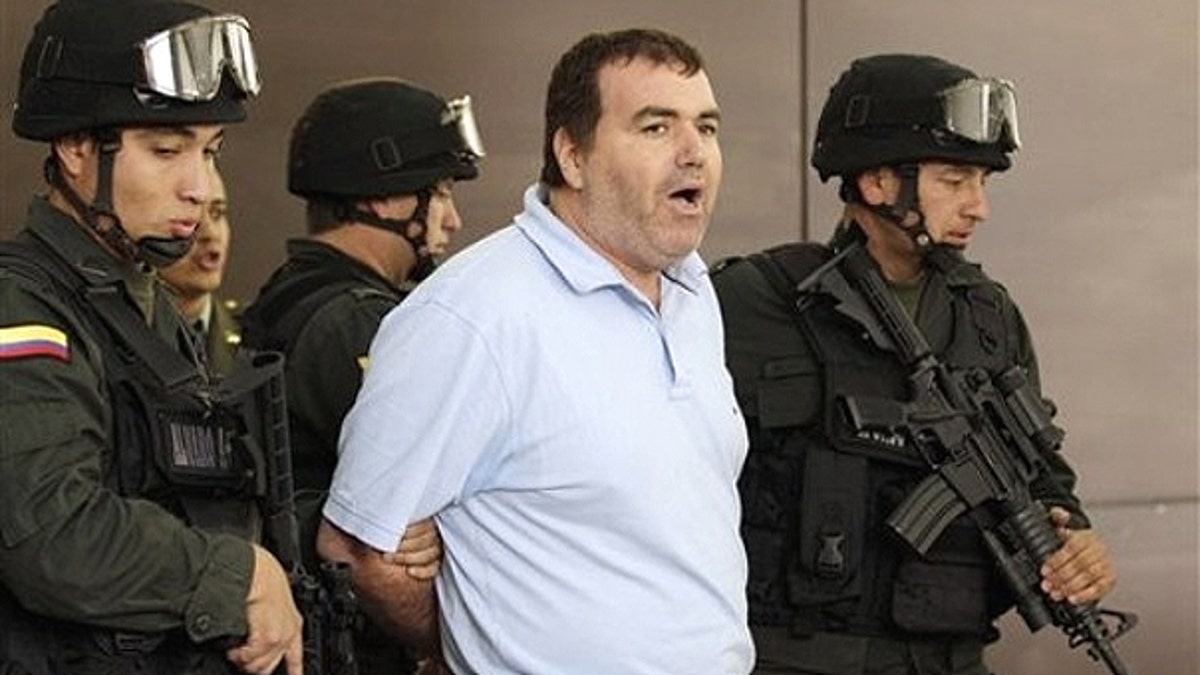
“I’m going to keep my word, we are a serious country.”
With those words Colombian President Juan Manuel Santos defended his decision to hand over Venezuelan drug baron Walid Makled García to President Hugo Chávez instead of extraditing him to the United States.
According to the White House, Makled is the third most important drug kingpin in the world, responsible for smuggling ten tons of cocaine into the USA and Europe a month (roughly 10 percent of the global cocaine supply).
In statements made from the maximum-security prison where he is being held in Colombia, Makled has stated that without the cooperation of a large number of high-ranking military and civilians inside the regime of Hugo Chávez he would not have been able to become Venezuela’s equivalent of Pablo Escobar.
How else can we explain the fact that Makled, for more than 6 years, until 2008, owned Venezuela’s largest airline; had large protected warehouses in Venezuela’s largest port, Puerto Cabello; and bought enormous quantities of urea, a chemical used to process cocaine, from a state entity? No drug kingpin enjoys their own airline and port to run their business.
How did he obtain these prizes? He has declared, publicly, that high-level government civilian and military officers awarded him the concessions in exchange for a piece of the“action.”
In his own words, Makled said: “Let's be clear. From these businesses, many people were fed. It’s that simple, from high up in the government. Of course, they received $1 million a month, and I have proof enough to demonstrate my relationship with the government. Furthermore, the generals recruited me. They even sold to me the drugs that they took from other dealers.”
As the Colombian government knows, the U.S. Treasury's Office of Foreign Assets Control has named a number of these Venezuelan generals as "Tier II Kingpins" for material support of drug trafficking. One of these men, Henry Rangel Silva, was promoted to his current position as General-in-Chief of the Unified Command of the Venezuelan Armed Forces by Chávez after being named by Makled as one of his most important collaborators. Another is the head of Venezuela’s military intelligence.
Yet President Santos has decided to return this man to Venezuela, to a Chávez regime that stands accused of cooperating with one of the most powerful drug trafficking cartels in the world, of supplying weapons to the FARC and cover to Hezbollah; and where the Judicial Branch of government has been compromised under Chávez’s crushing power.
Instead, Walid Makled must be extradited to the United States, to face his alleged crimes in a Federal Court in Manhattan, where he will receive a fair trial – something that Venezuela cannot currently provide.
A public trial in the U.S. can shed light on the grave accusations which – if they are confirmed – would place the Venezuelan regime as a state sponsor of terrorist organizations such as Hezbollah and FARC.
It could also shed light on the “drug route”, a series of underground highways where drugs flow freely through Honduras and through West Africa to the final destinations in the US and Europe, respectively. According to the UN Drug Office, 60 percent of drugs arriving in Europe pass through Venezuela.
Before President Santos gave his word to Chávez, he gave it to his own people, whom he has served with dedication and efficiency in Colombia’s efforts to fight the scourge of drug trafficking.
The Colombian President has in his hands the opportunity to reconsider his decision and save Venezuela from the same disaster which for so long has done such damage to his own country–illegal drug-running and terrorism. This is only possible if they extradite Makled to the United States and expose his operations–and connections -- to the clean light of day.
Diego M. Arria is the former Governor of the state of Caracas and former Ambassador of Venezuela to the Security Council of the United Nations.
